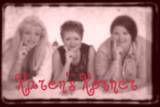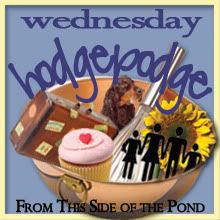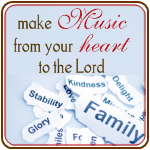My Scripture Reading today is from: Luke
22:14-23
We are going to sit in with Christ at the Last Supper
Communion
helps us see ourselves
• "In August of 1900 more than 250 hobos, tramps and
freeloaders came by train to a little northwest Iowa town for their first
annual National Hobo Convention. They ate free food, drank free drinks, stayed
in free accommodations, played games, drew up a political platform and
nominated a candidate for the 1900 Presidential election. We are speaking about
a tradition that is repeated even to this day-the Annual Hobo Days in Britt
Iowa. This is an Iowa Parable. The people of Britt have been inviting the hobos,
the bums, the free loaders to Britt each year not because they deserve it, not
because in some way they have earned it, they get their free food and drink,
this special treatment because they are hobos nothing more."
• All sorts of conventions happen across this vast country
each day, but the annual Hobo Convention at Britt is different, they didn’t
deserve it, ask for it or encourage it. It was given freely. Freely given to
hobos who haven’t worked, who are lazy, crude, dirty, dishonest, who have been
arrested in freight yards, chased out of public parks, and rousted for
vagrancy. But in Britt, for one weekend, the hobos, the freeloaders, the
roustabouts are kings an celebrate their humanity. For a brief time they are
loved for who they are, fellow human beings who celebrate their humanity and
its worthiness for one brief weekend. (The book Iowa Parables by Jerry
Schmalenberger)
• "And he took bread and when he had given thanks he
broke it and gave it to them saying, "This is my body which is given for
you. Do this in remembrance of me. And likewise the cup after supper saying,
"this cup which is poured out for you is the new covenant in my blood.’
• Jesus says come and eat all is ready, come not because you
deserve it, not because you have earned it, come because it is freely given.
Yes, like it or not, we come to this supper as the Hobos come to Britt. We come
not deserving but accepting. We come to this grace banquet to celebrate God’s
victory, not ours. We come to celebrate our humanity in Christ. ’Whose we are’
not how are we doing. We come, we are invited by God through Christ to come and
eat and drink not because we are so great, but because the great love God has
for us. We come though we have ignored God, turned against him, cursed him, and
used him, taken advantage of him, become angry with Him. He still invites us,
He still accepts us at His table, as we are.
• We come, because of Christ as forgiven people, who are
nourished, renewed and refreshed as we celebrate our humanity in Christ who has
freed us from ourselves. We come not as perfect people, but as forgiven people.
Here we come in celebration of the imperfect--those who make mistakes, stray
from the straight and narrow, foul up relationships, offended, tramp on toes,
and blow the whole thing. We come in celebration as we live in our brokenness,
our low self-esteem, our questions, our feelings of unfairness with life, we
come not as people who have control of life but as people who have lost
control, and have surrendered life to Christ. We come as people who are sorry
for our mistakes and are tired of running our lives by ourselves. We come as
people who are celebrating the grace of God through the body and blood of
Christ.
• We come as the Hobos to Britt to begin to feel good about
ourselves, to be people who can be accepting of our humanity because it is
indeed a gift from God. We come; we eat and drink, as undeserving people,
people who wander between being enemies of God or friends depending on who is
controlling our lives. Remember that even Judas ate and drank from the table,
from the bread and wine. Judas who betrayed Jesus, Judas who Jesus knew to be
the one who would turn Him over to the Romans, he was not excluded from the
table, he ate, he drank. Again and again the scene is repeated, we come to the
table as those who betray Jesus, as His enemies, we come as we are forgiven and
welcomed. The table is not excluded from anyone, because it does not depend on
our merit, our work, our lives, our actions, the supper is a free gift from God
to us. It depends on His action through Christ not ours.
Communion
helps us see Jesus
• "Leslie Weatherhead tells of a little boy who was
admitted to an orphanage after his parents were killed. One of the first items
on the agenda was to find him a new set of clothes. He was given a new pair of
pants, a new shirt, and a pair of shoes that shinned as he saw his face in its
glow. Lastly, he was offered a new hat. But he refused to take it. He hung on
to his worse- for the-wear—hat. Finally the Sister was able to coax him into
trying on the new cap. He tried it on, liked it, but then did something very
funny. He reached inside his old cap and tore the lining out and placed it in
his pocket. Noticing the Sister had a
puzzled look on her face, he said said, "The lining is a part of my
mother’s dress; it’s all I’ve got left of her and somehow it seems to bring her
back."
• Communion is like that for us with Jesus. The bread and
the wine are a sign of His presence with us, a reminding of when God walked the
earth in the form of Jesus. The bread and wine, the body and blood are a
nonverbal way for God to give us His love. Human beings have many ways of
determining what is going on around us. We taste, we touch, we smell, we feel,
we hear, we see and we have numerous combinations of all of those. The primary
way we are encountered by God’s love is through the spoken and written word.
But God doesn’t stop there; he encounters us with other parts of our senses, as
in Holy Communion as we touch, taste, feel, smell, and see, all of these
nonverbal ways which God brings his love into our lives.
• Christ’s love is present here at this supper. He assures
us of that when He said, ’’This is my body, this is my blood". He brings
himself to the people as a nonverbal sign, reminder of God’s gracious love for
us. As we leave communion, we leave with a bit of Jesus in our bodies, hearts
and souls. When we leave, we continue our faith journey with a reminder of
God’s grace, God’s love, and a piece of Jesus inside us as we go about our
daily walk. We are like that boy with the lining of his hat in his pocket
reminding him of his mother, so as we commune, we have a reminder, a sign of
God’s presence in our lives in the form of bread and wine, body and blood.
• Indeed, the personal, nonverbal contact we have with the
Lord in this meal should be cherished by all. His presence is there in a way
which involves our whole bodies. As I say your name today as you receive the
bread and wine, you will know in a personal way that you are the invited quest
at this meal where Jesus is the host as you eat and drink in His presence. Not
only is He present with you at the table, but you put Him in your pocket, so to
speak, as you leave so that He is present with you out in the world. For some
that means a time of judgment, for others a time of grace and comfort,
assurance and peace knowing that the savior is there as the good shepherd to
care and uphold one on their faith journey.
Communion
helps us see our bond with others
• We find a sense of community togetherness; a friendship
with Christ and with each other at this meal.
• "In Pawlet, Vermont, they have an old train Station
turned into a luncheonette somewhat like the Victoria Station in Harlan,
Kentucky. This luncheonette is different
than most. On one of the walls is an arrangement of coffee mug pegs. Anyone in
the town can bring his/her own coffee mug for daily coffee breaks and then hang
it on the right peg for the next time." As the people gathered, they would
talk, visit, and notice if a mug was missing, or hadn’t been used, it was a
time of community, of sharing, of being concerned for one another. "
• Now, food has always been a way of bringing people
together, for sharing, or discussing, of learning about one another, so here at
communion there should be a sense of that community which was found in that all
railroad station. But is there? Do we
see here people who are concerned about us as we are concerned about them? William Barclay says this: "The most
precious thing in the world is a friend to whom we can go to any time, and
never feel a nuisance; someone to whom we can turn whenever we need him someone
to whom we can talk about anything, someone who will never laugh at our dreams
or mock our failures."
Christ
is that kind of friend, can you be too?
The Hobos of Britt, the orphan boy with a piece of lining in
his pocket and the friendship of Christ and others are all present here in each
of us, as we come to eat and drink, to partake of bread and wine, body and
blood.
Please turn in your hymnals for this most special Easter
Communion.



















































No comments:
Post a Comment